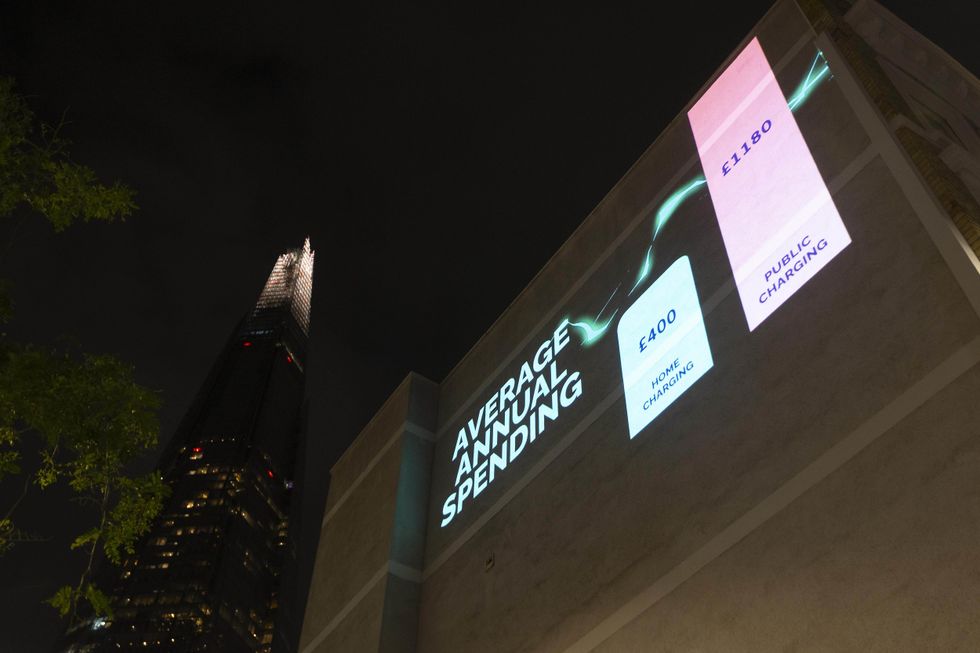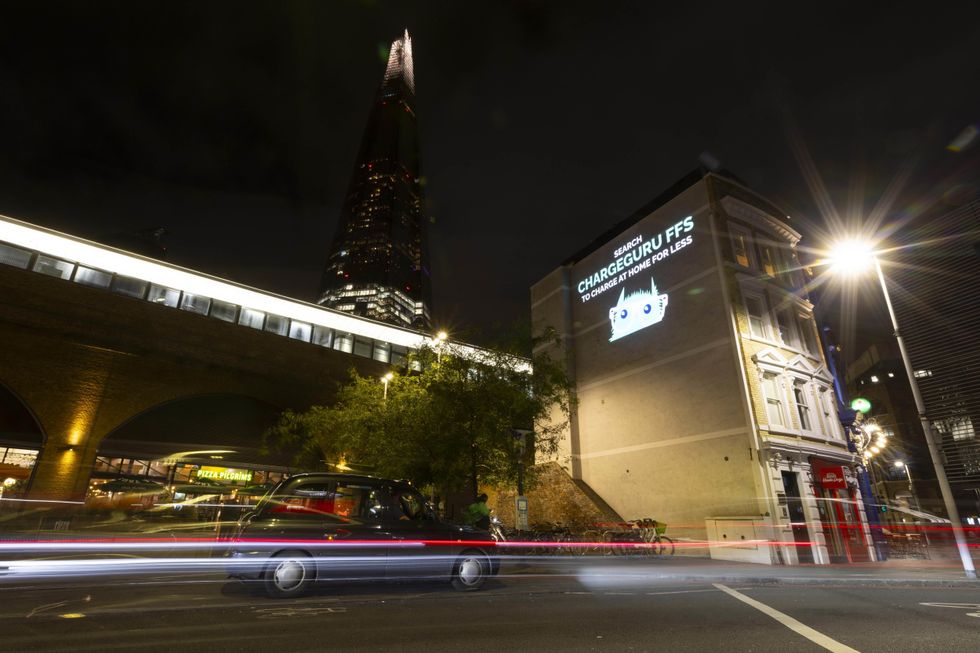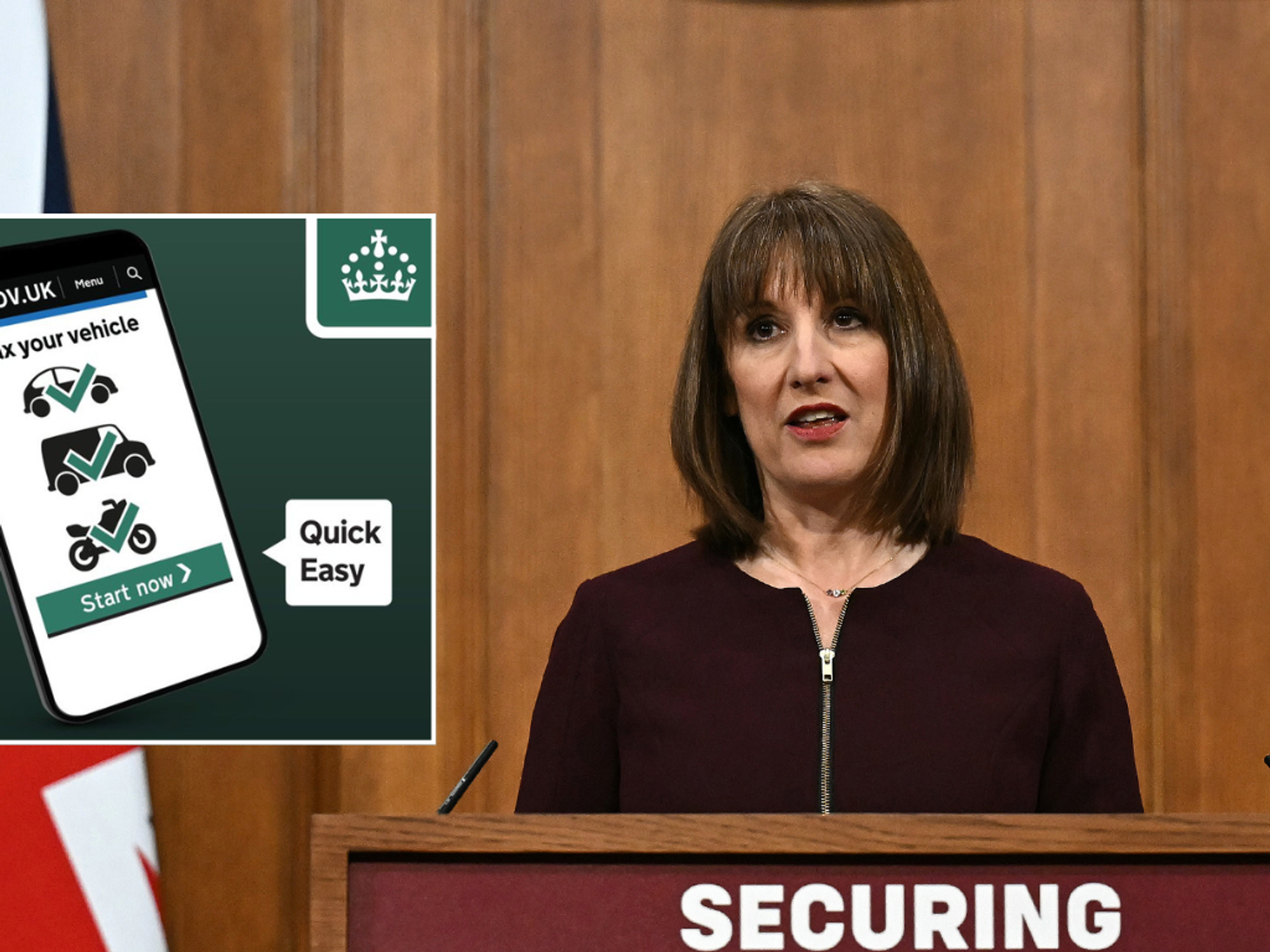Campaigners lit up buildings around London to highlight the need for more home EV chargers
PA
One expert said the electric vehicle transition needed to be 'inclusive' for all drivers, no matter where they live
Don't Miss
Most Read
Trending on GB News
Millions of drivers across the UK could be left behind in the transition to electric vehicles over the coming years, according to damning new research, amid calls for motorists to demand more help.
New data has found that 70 per cent of UK residents who live in flats or apartments are forced to rely on more expensive public charging solutions.
To combat the fears around relying on public chargers, ChargeGuru UK has lit up flat buildings across London to educate residents and property managers about home EV charging solutions.
Around 53 per cent of residents living in flats plan to switch to an electric vehicle by 2029, adding to the 12 per cent who already drive EVs.
Do you have a story you'd like to share? Get in touch by emailingmotoring@gbnews.uk

The campaign aims to show the spending differences between charging at home versus in public
PA
However, existing concerns around how these people will be able to charge their vehicles for a cheap fee have dominated, potentially putting some off from making the switch.
Estimates show that 3.4 million people could be at risk of being left behind in the transition to electric vehicles within the next five years.
Seven in 10 flat residents are or would be reliant on public charging stations, which are three times more expensive than home charging, on average.
The new FFS campaign - Fully Funded Solution - calls on property managers to respond to growing demand for home EV chargers to help more people make the switch.
Residential buildings across London, including London Bridge, Canary Wharf and Barbican, have been lit up to highlight the demands from motorists to have suitable charging solutions available to them.
The research also found that only 29 per cent of property managers have invested in EV charging infrastructure over the past 12 to 18 months.
A further 32 per cent have plans to install home chargers in the next year, which some experts have warned is not quick enough and could lead to motorists choosing petrol or diesel vehicles to plug the gap in the meantime.
Reacting to the research, Denis Watling, managing director of ChargeGuru UK, highlighted how the transition to electric vehicles must be "inclusive".
He added: "Our illumination shines the spotlight on the fact that residents in flats deserve the same opportunities to embrace electric mobility as those in houses.
"We’re empowering both residents and property managers by not only creating excitement around the potential of this technology but also educating on what’s possible so action can be taken, ensuring no one is left behind in this EV revolution."
The Government continues to offer the EV chargepoint grant which can help towards the cost of installing an EV charger for renters or flat owners.
Motorists can either get £350 or 75 per cent off the cost to buy and install a socket, whichever amount is lower if they live in a flat they own (including flats bought through the shared ownership scheme), or they rent a residential property, have access to their own off-street parking space and have an eligible EV.
LATEST DEVELOPMENTS:
- Britons support fuel duty freeze and warn price hikes would be 'economic and political suicide' for Labour
- Motorists demand urgent law changes as Britons need car checks 'without it hitting them in the wallet'
- British drivers offered 'gamechanger' deal to get popular new electric vehicle for just £195 a month

The FFS scheme is calling on property managers to install home EV chargers for residents
PA
The latest data from Zapmap shows that there are 70,434 public charging devices around the UK, with almost 103,600 connectors helping EV drivers stay mobile.
The data also estimates that there are around 850,000 charge points installed at homes or workplaces around the UK where the "majority of charging" still takes place.








